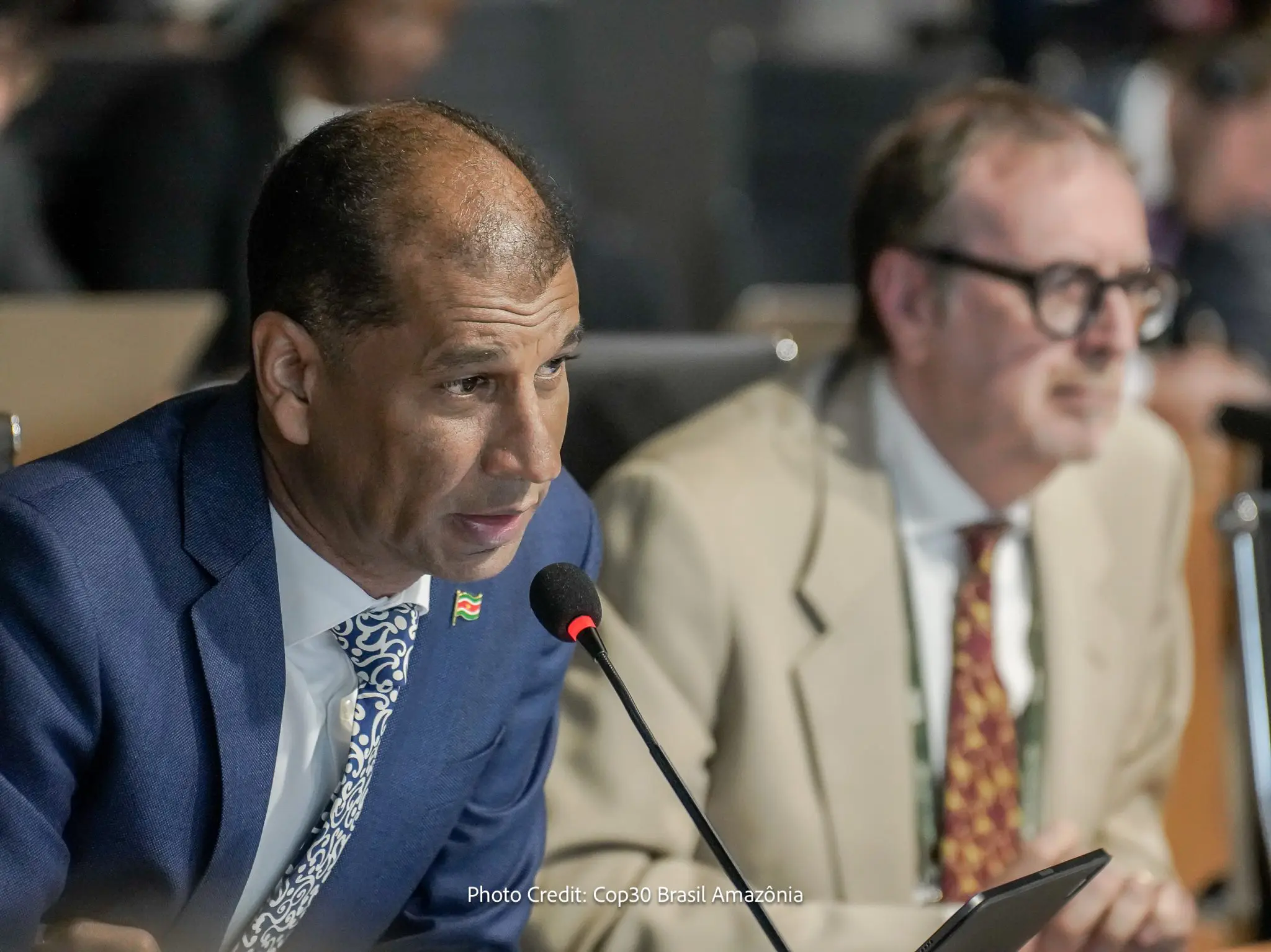PARAMARIBO, SURINAME – In the run-up to the 30th Session of the COP30 (United Nations Climate Change Conference) scheduled for November in Belém, Brazil, Suriname is signaling its intent to link climate action with its evolving oil and gas-era strategy.
Earlier this month, Patrick Brunings, Minister of Oil, Gas and Environment of Suriname, joined ministers, international organizations and climate experts in Brasília for the Ministerial Pre-COP30 meeting. The meeting served to sharpen the agenda ahead of COP30, focusing on themes such as mitigation, adaptation, the energy transition, nature conservation and climate finance.
In his address, Minister Brunings underscored that Suriname, one of the world’s most forested nations and a developing economy, must steward its upcoming oil revenues in a manner that delivers sustainable national development and preserves the Amazon rainforest.
Suriname is moving to diversify its power supply beyond oil and hydropower | OilNOW
He stressed that Suriname’s long-term stability depends on using its oil revenues to build a more diverse and low-carbon economy. According to the minister, investing in renewable energy and emerging industries will help the country sustain growth once oil production declines, proving that economic progress and environmental protection can support each other.
According to updates from the minister’s office this week, during the event, he held bilateral talks with European Union representative Wopke Hoekstra to discuss potential technical support and donor connections. He also met with the incoming COP30 President André Corrêa do Lago and ministers from Brazil and Barbados to explore regional cooperation.
Suriname joined consultations with the United Nations Framework Convention on Climate Change (UNFCCC), Alliance of Small Island States (AOSIS) and the Small Island Developing States (SIDS) meeting on financing for climate-vulnerable states.
Suriname looking to build out carbon trading industry, following in Guyana’s footsteps | OilNOW
Brazil’s Environment Minister Marina Silva called for “transformation rather than mere mitigation”, urging inclusion of all population groups in climate action.



